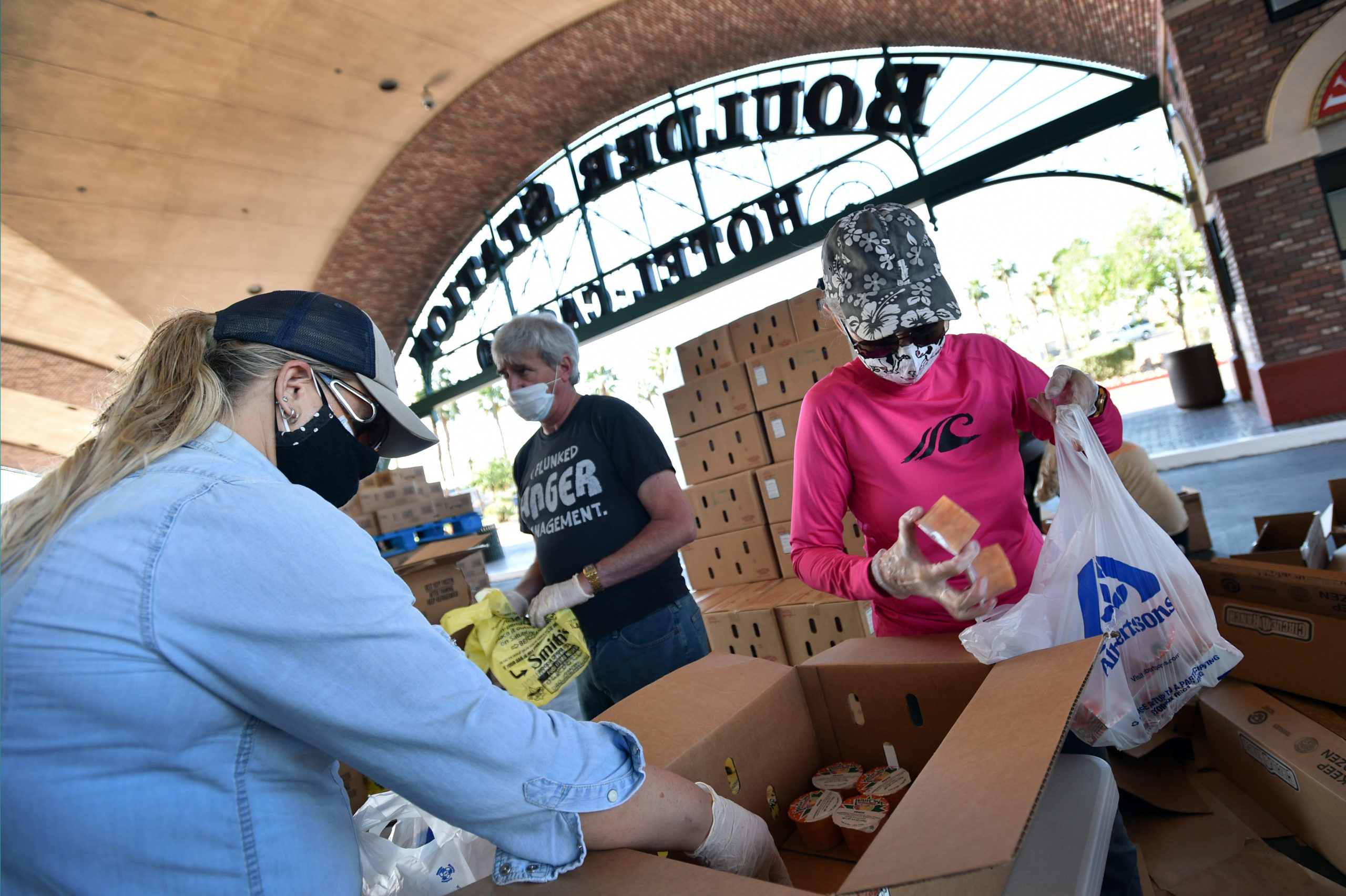Volunteers prepare groceries to be given out at a drive-thru Three Square Food Bank emergency food distribution site at Boulder Station Hotel & Casino in response to an increase in demand amid the coronavirus pandemic on April 29, 2020 in Las Vegas, Nevada.
DAVID BECKER
There’s no question many Americans need help right now.
More than 30 million have filed for unemployment since the coronavirus crisis began. Others may be struggling with reduced hours or a cut in pay, and parents are homeschooling their kids.
If you want to help, there are ways to do so without digging deep into your wallet.
“You don’t need to be a billionaire or anything close to it to be a philanthropist,” said Asha Curran, founder and CEO of GivingTuesday, a generosity movement that occurs the Tuesday after Thanksgiving. “You just need to love your fellow humans.”
Because of the great need the pandemic has caused, the nonprofit has launched #GivingTuesdayNow, set to occur on Tuesday.
More from Invest in You:
How Mrs. Dow Jones is helping young adults financially survive crisis
Free online college courses you can take while stuck at home
Only about half of Americans are confident they can pay full rent in May
“This is about a day to bring the whole word together to realize that we are all in solidarity with one another, that we can only get through this with one another,” Curran said.
It’s not just individual people who are feeling the pain. Many of the nonprofits designed to serve them are grappling with staffing and funding issues.
“Nonprofits have so many needs right now because they are being hit on all sides,” said Stacy Palmer, editor of The Chronicle of Philanthropy.
“Every nonprofit is being affected by the economic downturn or the health crisis or by both.”
Here’s how you can do your part.
Find a nonprofit
To help out in your community, look up the nonprofits in your area.
You can also go online to VolunteerMatch.com, which has a section dedicated to Covid-19. There, you can be matched up with nonprofits looking for help, most of which are offering virtual opportunities.
Points of Light also has work-from-home volunteer opportunities, as does Idealist.
There are also some in-person options, like helping staff a food bank. Many are shuttering due to lack of volunteer help. Others are reaching out to college students who are home from school, Palmer noted. Families can also collect food to donate, without having to work at the location.
“This is a really good opportunity for people to instill giving values in adult children,” she said.
Just be sure to take proper safety precautions, such as wearing a mask and gloves, when in public.
For help in deciding just what to do to help, think about the cause or nonprofit you care most about in your life.
“Almost all of them have needs at this moment, so check their website or send an email offering to volunteer,” Palmer said.
Volunteer your skills
Sew Loved, a nonprofit in South Bend, Indiana, that teaches sewing and vocational skills to underserved women and at-risk teens, is working to produce thousands of washable face masks through its network of home-based sewers.
Sew Loved
Donating your skills is the “most valuable thing that anyone can offer right now,” Palmer said.
For example, nonprofits can use lawyers, or those with technical or communications know-how. In fact, many have already relied on volunteers with finance or legal backgrounds to help them file for a loan through the government’s Payroll Protection Program, she noted.
College students can help with online tutoring. Those with language skills can help students who are struggling with English and no longer have the necessary in-school help.
Social workers might donate their time by doing virtual therapy, while those who can sew can donate face masks, GivingTuesday’s Curran noted.
Also, think about helping by just being someone to talk to.
Families can gather neighbors together in virtual meetings or organize people to phone elderly neighbors “just to provide care and comfort and conversation,” Curran said.
“Part of the problem with this pandemic, not only are we facing economic collapse and a health crisis, but also isolation and loneliness,” she added.
Mobilize networks
Think beyond what you can do as a single person. Gather together your network to encourage others to do the same, Curran said.
For example, that social worker could mobilize her entire network of social workers to do the same thing across the country.
This way you are making a difference in “hundreds of local communities,” said Curran.
